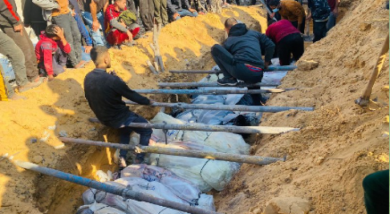
31 DAYS OF HUNGER STRIKE AGAINST ADMINISTRATIVE DETENTION AND SOLITARY CONFINEMENT
On 14 December 2001, Bilal Wajih Kayed, then 19, was arrested by Israeli forces from his house in ‘Asira Al-Shamaliya, Nablus. Three years later, Israeli courts sentenced him to 14 and a half years in prison. Initially, his family was prohibited from visiting him. Bilal was first held at Majido prison. He was then was transferred to Naqab, ‘Askalan, Jalbou’, Rimon, and then back to Majido. All prisons lie outside of occupied territory and within the Green Line. On 1 September 2015, Bilal was transferred to Jalbou’ prison where he was placed in solitary confinement for six months and was once again denied family visits, as punishment for his activity in prison. Following that, he was transferred to another prison in Bir Al-Sabe’ where he was placed in solitary confinement again. Once again, he was denied family visits. Bilal’s solitary confinement was extended until his release date, 13 June 2016.
On 13 June, as Bilal’s family and friends were eagerly awaiting his release, they were notified that Bilal, now 35 years old, was transferred to Ofer military court and was sentenced to six months of administrative detention. Bilal was then transferred to Rimon prison and placed under solitary confinement again. On 15 June, Bilal commenced a hunger strike against his administrative detention and isolation without charge or trial. (Al-Haq affidavit no 420/2016)
According to Addameer Prisoner Support and Human Rights Association, Bilal was offered a deal of deportation to Jordan for four years under condition of no political involvement, which he refused. As of 4 July 2016, Bilal continues to be on hunger strike.
Israel’s policy of administrative detention violates international human rights law (IHRL) and international humanitarian law (IHL). According to IHL, the Occupying Power is permitted to detain persons as long as the reasons for internment are exceptional and each case must be decided individually. Also, the detainees must be held within the frontiers of the occupied territory itself. Under IHRL, individuals have the right to be informed of the charges against them at the time of arrest, to be brought promptly before a judge, and given the opportunity to challenge the lawfulness of the detention, and the right to access a lawyer. Individuals are also entitled to other due process and fair trial rights. Al-Haq demands that Israel immediately ends its illegal practice of administrative detention and calls for the release of all administrative detainees.





